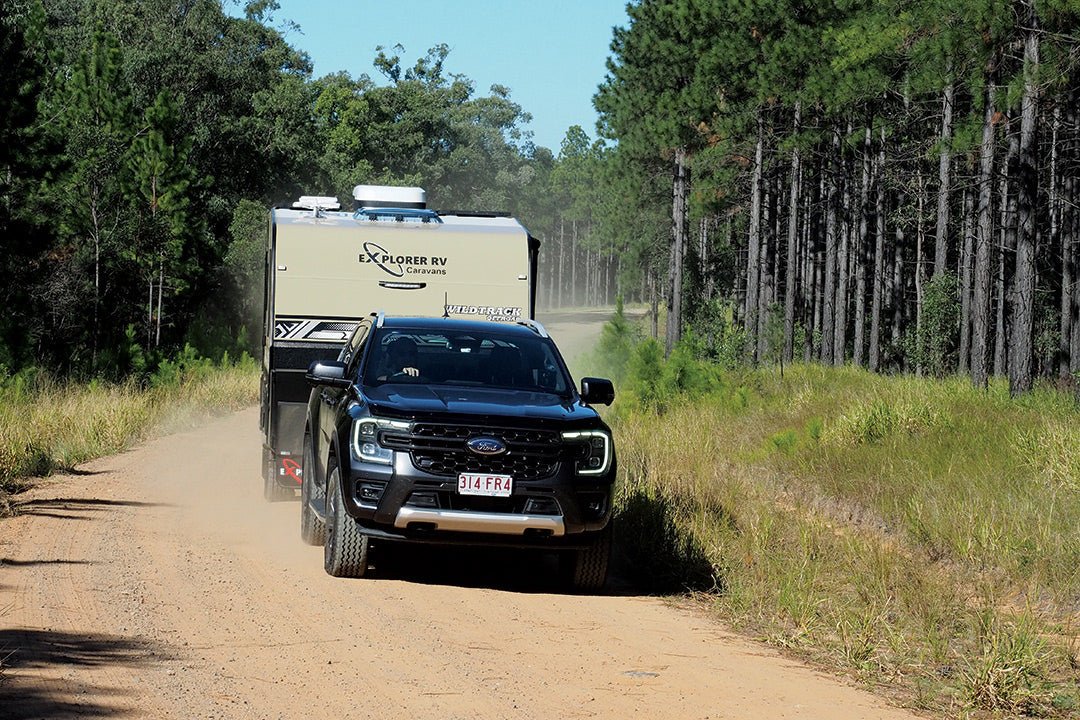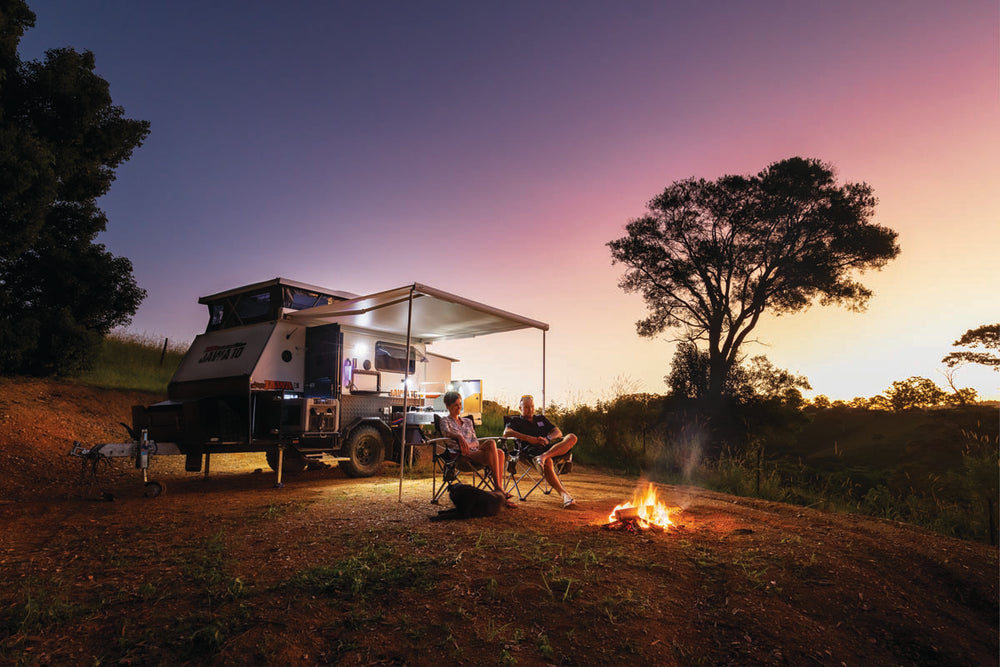Street Talk: Top tips for those considering buying a caravan

Do your research and try before you buy is Malcolm’s advice for newcomers to the caravan lifestyle.
I recently read through a caravan-related Facebook page, and one particular post caught my eye. The poster was a newcomer to the world of caravans, camper trailers and motorhomes, contemplating a year-long trip around Australia with the family and doing some work along the way.
It’s not a bad thought at all, except that, based on the very general question being asked, the person didn’t know too much about the recreational vehicle (RV) lifestyle and had yet to purchase a caravan and maybe a tow vehicle.
Initially, I thought the question was rather naive, but then I figured that if you really didn’t know much about RV travel, then how would you know what questions to ask or where to ask them?
Undoubtedly, some folks have jumped into the deep end of owning a caravan or motorhome and have enjoyed it so much that they keep on travelling. On the other hand, some folks have made costly mistakes, partly through ignorance, and have long regretted them, particularly during and after the COVID era.
Some of us were lucky; most of my early caravanning experiences came from travelling with my mum, dad, brother and sister. I learned much from those early trips and even though much has changed since those early days, it was a useful grounding. Reversing a caravan was something I learned when I was 18 or 19 and it’s a skill I still use. One of my other family memories is dealing with an absorption fridge that wasn’t working correctly. The gases had separated because the van had not been parked levelly. The solution at the time was to take the refrigerator out of the van (it wasn’t huge in those days) and stand it on its head for a couple of hours.
Where to start?
Going back a few decades, any potential caravan buyer gained information from a caravan dealer, a caravan show, or reading great publications like Caravan World. In those days, for example, gross combined mass (GCM) wasn’t on anyone’s radar, and neither were items like lithium batteries, solar panels (except on expensive vans), washing machines and LED lighting. Far-thinking people were starting to make noise about caravans being too heavy, but it wasn’t too much of a concern. Dealers, RV shows and Caravan World are still around, of course, but the internet has resulted in an explosion of information on just about anything you care to name in the RV industry.
The problem is that while much of the information is useful, it often requires considerable discernment. It’s a situation where a reader needs to be discerning about what’s being read yet needs the necessary knowledge to understand.
Behind the bling
Expectations play a part too. A walk around a caravan show or even stays at campgrounds or caravan parks might give the impression that an offroad caravan with a beefed-up chassis, fully independent suspension and a high-capacity lithium battery system is necessary to undertake a trip around Australia. Yet, the reality is that much of Australia can be seen by mostly travelling on sealed roads in a van equipped with leaf spring suspension and a single AGM battery — a considerable saving in weight and cost, both upfront and ongoing.
Research
An old military expression went something like “time spent in reconnaissance is seldom wasted”. That’s true here too. Time spent on preliminary research is seldom wasted, even when reading something that’s a bit mediocre. For example, understanding something like maximum weights on both the tow vehicle and caravan is critical. Likewise, absorption and compressor fridges operate differently; both can be used off-grid but require a different battery capacity. Getting an understanding of your lifestyle on the road may save a considerable amount of money. Caravan World’s esteemed editor John Ford loves life on a bush track in an offroad caravan. Yours truly spends more time on sealed roads. Consequently, our RV choice differs, yet we both enjoy the RV lifestyle.

The practicalities
The challenge to determine what caravan, tow vehicle and accessories might suit you is something difficult for newcomers. I’ve said this before but one of the best ways to get some idea of the caravan/motorhome lifestyle is to try before you buy. Unlike motorhomes, few caravan rental companies are available, but a platform such as Camplify is a great place to start to head out on a test drive to see if you like the van or the lifestyle. There are plenty of private owner caravans to rent, and it’s possible to get a van layout similar to what you might be considering. An alternative is to consider a motorhome rental. It’s not towing but it will give a good idea of the RV lifestyle, even overseas. See Motorhome Republic for cost and layout comparisons. A cheap way of trying something out is to do a couple of motorhome/campervan relocations — Imoova is a good one to check out for this option. You have to be flexible in timing and be prepared to fly to a pickup location but it’s a very cheap RV trial method.
There is much more to be said about purchasing an RV, but the best advice is to take your time and do plenty of theoretical and practical research.
THE NEXT STEP
If you want to learn the latest caravan news, find the most innovative new caravans and camping gear or get inspired to plan your next adventure to some of Australia's best getaway destinations, subscribe to our weekly newsletter. We promise to send you only the best content.
Related articles:
Buying an RV online: How to avoid scams?







